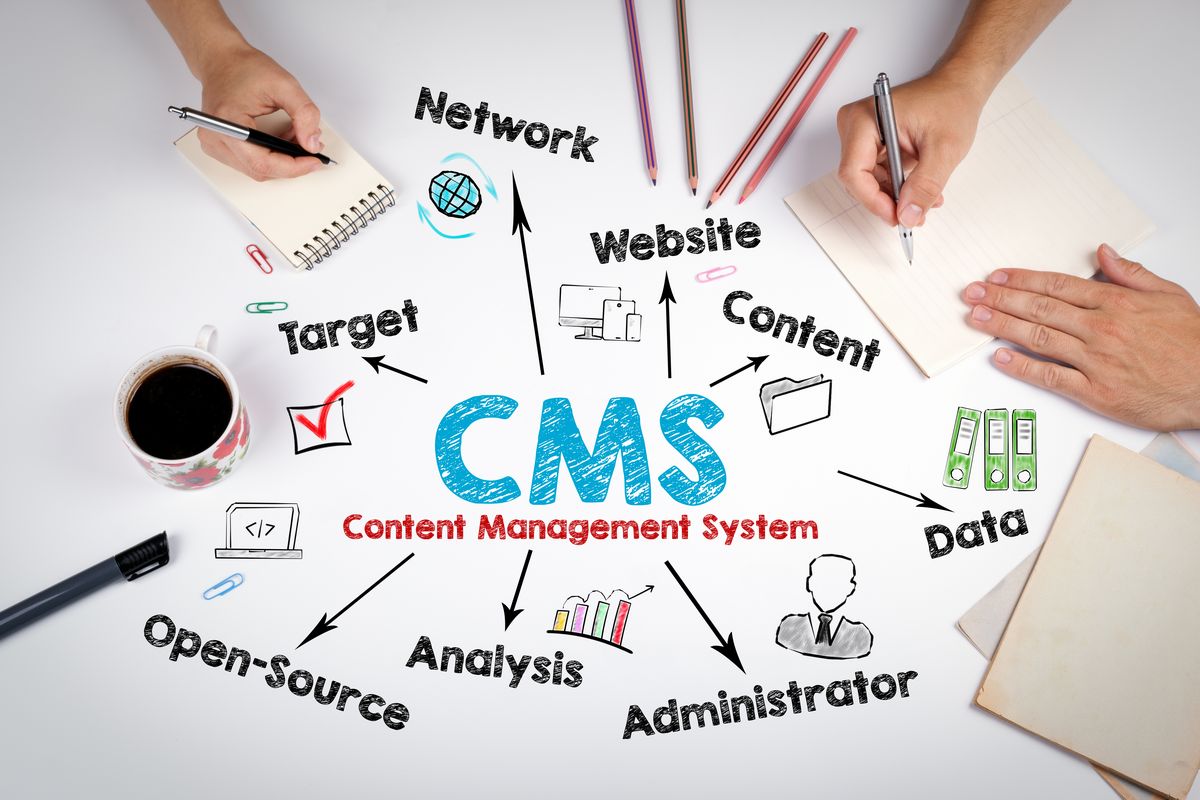Understanding Web Apps and Mobile Apps
Web applications, or web apps, are applications that run on a web server and are accessed through a web browser. They are not device-specific and can be used on any device with an Internet connection and a functional browser. Web apps are typically built using HTML5, CSS, and JavaScript, and can offer a wide range of functionalities, from content management to e-commerce. Since they're hosted on a web server, they don't require storage space on the user's device, and they're easy to update and maintain since the updates occur directly on the server.
Mobile applications, on the other hand, are tailored specifically for mobile devices. They can tap into the device's native features, such as the camera, GPS, and push notifications, providing a more seamless, interactive experience. These apps are designed using languages specific to each mobile platform – Swift or Objective-C for iOS, and Java or Kotlin for Android. The app should be downloaded from an app store and installed on the user's device.
Key Differences Between Web Apps and Mobile Apps
The principal difference between web apps and mobile apps lies in their accessibility. While web apps can be accessed from any device connected to the internet, mobile apps are limited to the specific device and platform they are designed for. Mobile apps typically offer a richer user experience, with smooth transitions and animations, but require a more complex development process and higher budget.
From an accessibility standpoint, web apps are more flexible. They use a responsive design that adapts to any screen size, providing a consistent user experience on any device. On the other hand, mobile apps offer superior performance and faster load times, as they store their data locally on the device. This makes them an ideal choice for graphics-intensive apps like games or photo editors.
Moreover, web apps are easier to update and maintain. There's no need for the user to download and install updates as they're applied directly on the server. With mobile apps, users have to manually update them, which can result in users running different versions of the app, posing a significant challenge in maintaining compatibility across all versions.
Choosing Between a Web App and Mobile App for your Business
The decision to choose between a web app or a mobile app for your business largely depends on your business objectives, target audience, and budget. For businesses seeking a cost-effective solution that is easy to maintain and update, a web app might be the best choice. Web apps can reach a broader audience since their usage is not confined to a specific device or platform. They also require less development time compared to mobile apps, enabling faster time to market.
On the other hand, if your business draws heavily on mobile users, a mobile app could provide a higher degree of engagement and user-retention. Mobile apps are also better suited for complex tasks and can leverage native device functionalities to deliver a more intuitive user experience.
Remember, however, neither option is inherently superior to the other. Each has its strengths and weaknesses, and the best choice depends on the specific needs and goals of your business. Some businesses might even benefit from employing both – using a mobile app to offer an enhanced user experience for devoted users while maintaining a web app for more casual users and wider reach.

The Impact of User Interface on User Experience
The quality of the user interface (UI) plays a significant role in shaping the user's experience and perception of a web app or mobile app. In a web app, the interface is generally simpler and less immersive compared with a mobile app. This is because the design needs to be responsive and adaptable to various devices, screen resolutions, and browsers. Therefore, web apps often adopt a minimalist design approach to maintain consistency in different environments. In contrast, mobile apps, with their platform-specific design, can provide a richer, more engaging user interface with sophisticated animations, transitions, and interactions. The user interface can use the device's native capabilities to deliver a personalized and intuitive user experience. Furthermore, a well-designed mobile app can greatly enhance brand recognition and loyalty, making it a worthwhile investment for businesses that aim to establish a strong presence in the mobile domain.
Considerations for Security and Compliance
Security is a critical aspect to consider when deciding between a web app and a mobile app for your business. Web apps are generally more prone to cyber attacks since they are accessible from any device with an Internet connection, and keeping them secure involves constant monitoring and updating. They also need to be compatible with various web browsers, which can increase their vulnerability. On the other hand, while mobile apps are not entirely immune to security risks, they are more secure as they need to pass the app stores' rigorous security standards before they can be downloaded by users. Moreover, mobile apps can tap into the device's native security features for added protection. However, businesses must also take into account the compliance regulations specific to mobile apps, particularly if they handle sensitive user information. Hence, security and compliance are critical factors that should be weighed in during the decision-making process.
Measuring Success: Analytics and User Feedback
Understanding how users engage with your app is key to enhancing its features and functionalities over time. Both web apps and mobile apps offer different analytics capabilities that can provide valuable insights into user behaviour. Web apps primarily rely on tools like Google Analytics to track user engagement, navigation patterns, drop-off rates and other key performance indicators. Mobile apps, on the other hand, can provide more detailed user analytics, such as time spent on the app, frequency of use, reaction to push notifications, and more. Additionally, mobile apps have better mechanisms to collect user feedback directly in-app, making it easier to identify areas for improvement. This could lead to better user retention and ultimately higher revenue for businesses. So, while both web apps and mobile apps offer analytics capabilities, businesses should consider their specific analysis requirements when making the choice.

Understanding the Development Process
The traditional development process for web and mobile apps is quite different. Web apps usually follow the standard "waterfall" development method where all the phases of the project are laid out in a step-by-step process. This allows for more predictability and control over the project, but it can be inflexible and time-consuming. On the other hand, mobile apps tend to follow the agile development method, where the project is broken up into smaller pieces, and each piece is developed and tested separately. This is a more flexible and efficient method but also requires more communication and coordination among team members. When choosing between a web app and a mobile app, it’s important to consider the resources you have available for the development process.
Role of User Experience in Conversion and Retention
User experience, or UX, plays a critical role in the success of both web and mobile apps. A well-designed user interface can improve user engagement and increase conversion rates. For web apps, this means a responsive design that loads quickly and is easy to navigate. For mobile apps, it means an intuitive interface that takes advantage of the device's features and capabilities. User retention is another important consideration. A good user experience can keep users coming back to the app, increasing the likelihood of conversions and sales. This means web apps should be easy to use, perform well, and offer valuable content. In comparison, mobile apps should provide a seamless experience that prompts users to keep the app installed and use it regularly.
Considerations for Pricing and Monetization
Another key factor to consider when choosing between a web app and a mobile app is the pricing and monetization strategy. Web apps are usually free to use and generate revenue through advertising or in-app purchases. Mobile apps, on the other hand, might require a download fee. Besides this, mobile apps also have in-app purchases as well as advertising as sources of revenue. Business should determine their revenue goals and select the app type that aligns best with those goals. Regardless of the methodology, transparency in pricing is crucial to maintain the trust of users and ensure a positive user experience.
| Aspect | Web App | Mobile App | Consideration | Business Impact |
|---|---|---|---|---|
| Accessibility | Accessible from any device via a web browser. | Accessible only on the specific device they are designed for. | Mobile apps provide a richer user experience. | Web apps can reach a broader audience. |
| Performance | Dependent on internet connection speed, can be slower to load due to browser | Faster load times thanks to local storage of data. | Mobile Apps are ideal for graphics-intensive apps. | Mobile Apps can offer better user engagement. |
| Updates | Easier and direct updates on server. | Manual updates by users required, posing compatibility challenge. | Web apps require less maintenance. | Faster updates can lead to better user experience and retention with Web Apps. |
| Security | More prone to cyber attacks due to wider accessibility. | More secure as they need to pass the app store's rigorous security standards. | Mobile Apps can tap into device's native security features. | Business must weigh higher security of Mobile Apps against compliance regulations. |
| Monetization | Advertising or in-app purchases. | Potential for download fee, in-app purchases and advertising. | Businesses need to select app type that aligns with their revenue goals. | Transparency in pricing is crucial for maintaining trust and enhancing user experience. |
Costs and time-to-market considerations
When deciding between a web app or a mobile app, it is essential to consider the cost and time needed for developing and launching the app. Generally, web apps are less expensive and quicker to develop, since they use a single, universal programming language and are not device-specific. This means developers do not have to create different versions of the application for each platform, reducing both development time and costs. Mobile apps, meanwhile, require separate versions for each platform, such as iOS or Android, which can double or even triple development costs and time. Moreover, the review and approval process from app stores can add extra time before the app is available for users.
Monetization strategies and opportunities
Different monetization strategies can be adopted for web apps and mobile apps. Web apps primarily rely on advertisements, sponsorships, or subscriptions for revenue. They can also generate revenue through online sales if they are e-commerce websites. Mobile apps, on the other hand, can bring in revenue through in-app purchases, premium versions, app advertisements, and subscriptions. Mobile apps often provide an easier path for monetization since consumers are used to paying for app downloads or in-app purchases on mobile platforms. Also, with the ability to push notifications directly to the user's device, mobile apps have greater opportunities to promote discounts, special offers, and new features to drive revenue.
Update and maintenance requirements
Another major difference between web apps and mobile apps is their update and maintenance cycle. Web apps can be updated on the server-side, and the changes are immediately available to all users. This makes it easy to roll out new features, fix bugs, or make general updates. On the other hand, updates on mobile apps need to be downloaded and installed by each user, which can lead to version fragmentation if not all users decide to update the app. Maintaining and providing support for multiple app versions can be a challenge. Therefore, it's important for businesses to factor in the ongoing maintenance and update requirements when choosing between a web app and mobile app.







